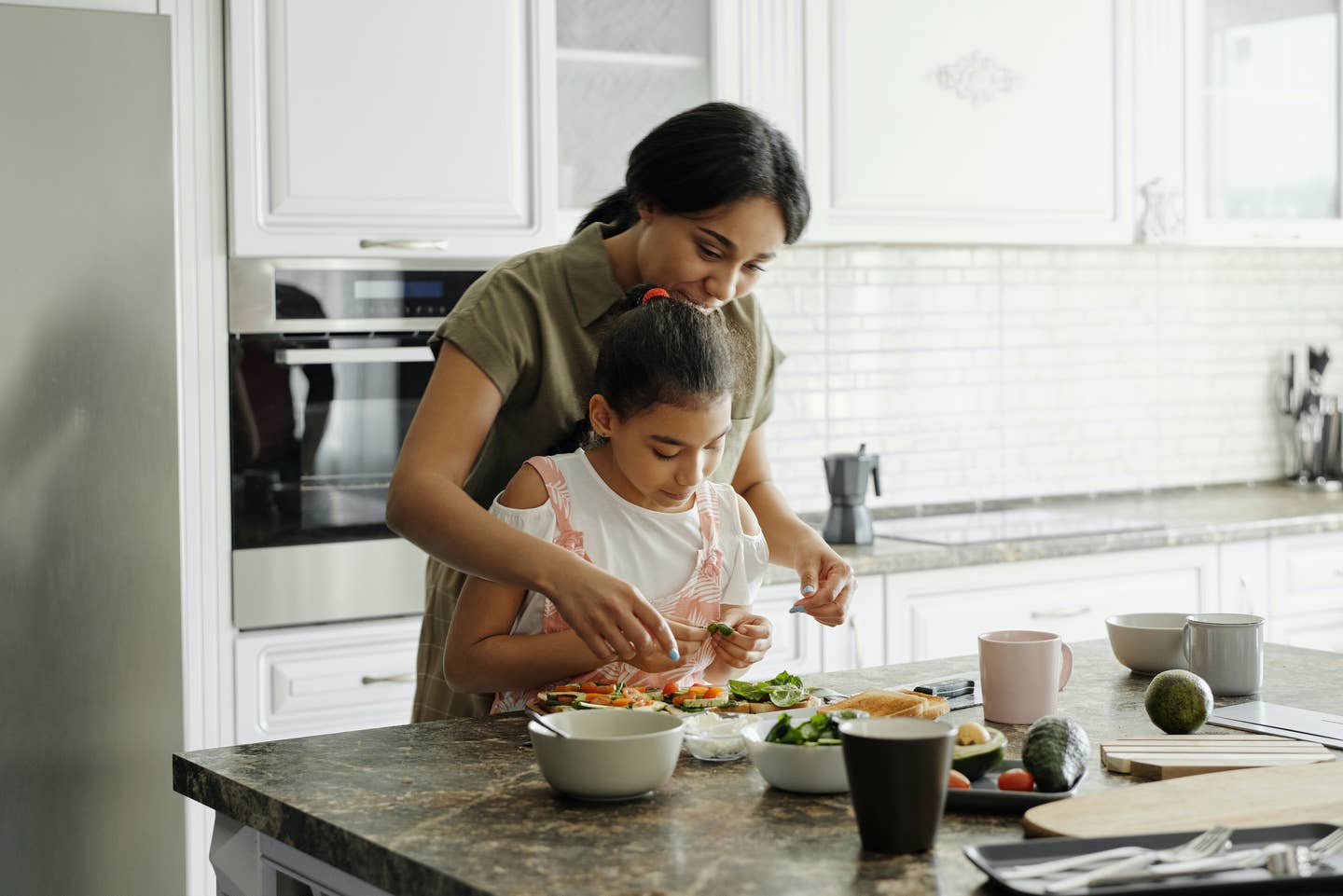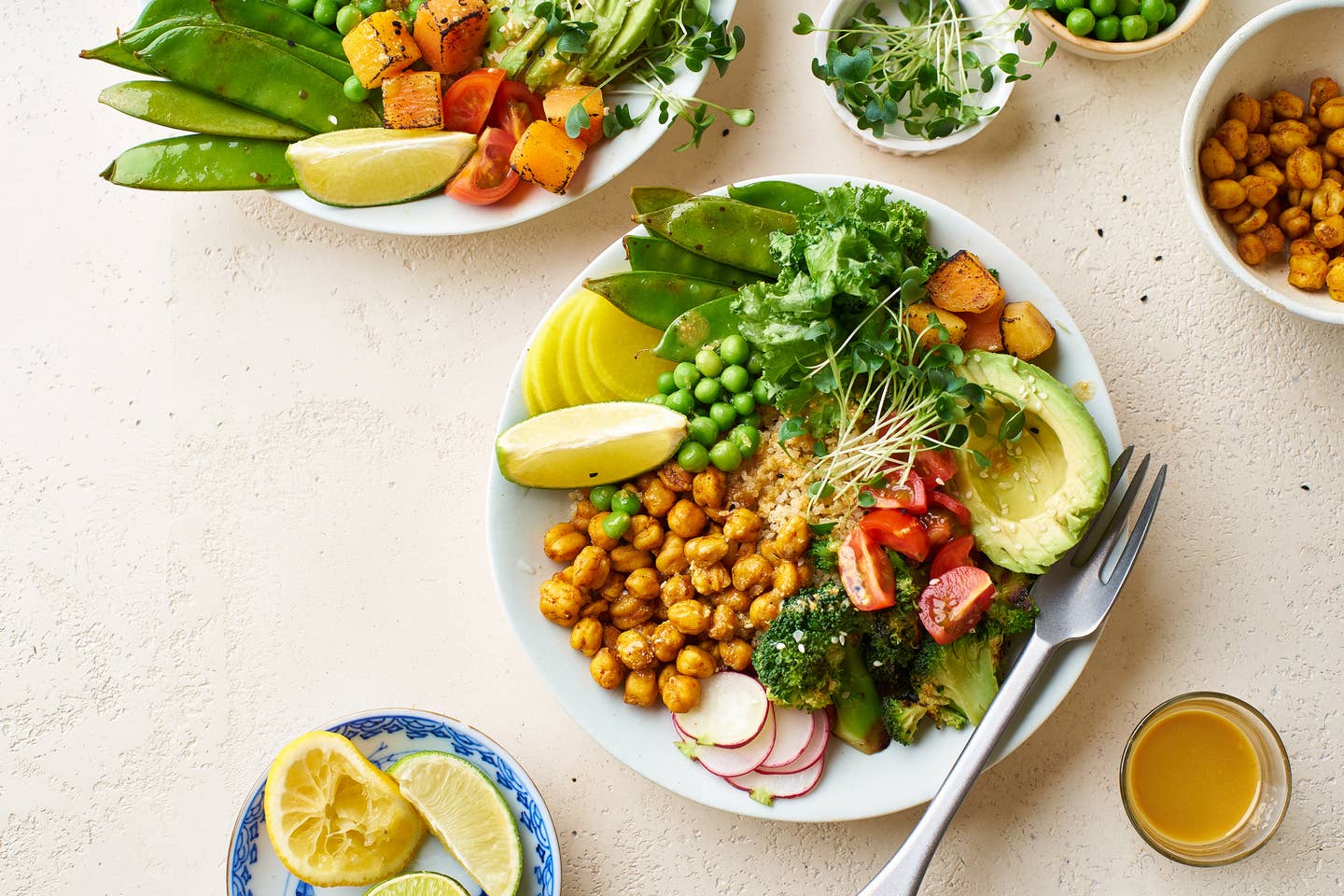
Is a Vegan Diet Safe For Children? A Plant-Based Pediatrician Weighs In
Despite vegan and plant-based diets soaring in popularity among parents who are raising their children on these dietary approaches, some pediatricians are critical of the practice of a vegan diet for children. Their biggest concerns with the vegan diet have to do with nutritional inadequacy since they believe a plant-based diet without dairy or meat does not provide enough vitamins and minerals children need for growth.
The latest research shows that individuals of any age following a vegan diet are at risk for deficiencies in vitamin D, calcium, iron, Omega-3 fatty acids, and vitamin B12 since these are the key nutrients from a whole-food, plant-based diet and require you to eat a range of foods to get all of your nutrients daily. New research out of France suggests that a vegan diet for kids and toddlers can be safe as long as children are getting all of those nutrients either through food or supplementation.
That study said specifically: "Regular dietary monitoring is essential, [to make sure the growing child is getting] vitamin B12 and vitamin D. The study also said that supplementation is often necessary since kids need iron, calcium, [omega-3] fatty acid, and zinc. So parents interested in keeping their children on a plant-based diet should be monitoring them for deficiencies and these micronutrients may need to be helped along with supplements on a case-by-case basis.
A 2018 study published in Nutrients recommends healthcare providers encourage a vegan diet and emphasize the consumption of nutritional supplements, which can be fortified as needed.
The American Academy of Pediatrics and the Academy of Nutrition and Dietetics h deemed a plant-based diet safe for children and toddlers. Research has shown a plant-based diet can be a healthy way for children and adolescents to establish lifelong healthy eating patterns with plenty of fruits and vegetables. A 2018 study published in Nutrition Reviews found that a plant-based diet during childhood reduces the risk for cardiovascular disease in adulthood, promoting longevity and good health.
To learn more about the plant-based diet and the safety of children, we spoke to Dr. Jackie Busse, MD, FAAP, a board-certified physician with expertise in evidence-based lifestyle and preventative medicine. On her platform @plantbasedpediatrician, she seeks to educate others on the power of plant-based nutrition for children while sharing delicious recipes and moments of her own young ones. In this exclusive interview,
Dr. Busse weighs in on the safety of a plant-based diet for children, advice for parents on getting children to transition to eat a more plant-based diet, and her recommendations for getting kids to eat more nutrient-dense foods.
The Beet: How has living a plant-based lifestyle influenced your role as a physician?
Dr. Busse: My husband and I transitioned to a plant-based diet 9 years ago, about a year after I finished my pediatric residency training. It completely changed how I practice medicine, shifting my focus to the power of diet and lifestyle to prevent and reverse disease. I have seen multiple diabetic patients come completely off their medications, chronic hypertension cured, chronic joint pains resolved, migraines, acne, allergies, and asthma significantly improved and constipation cured. Patients experience increased energy, better sleep and less anxiety and depressive symptoms. These patients are not anomalies. I’ve seen this over and over again in the years I’ve been teaching plant-based nutrition. It never ceases to amaze me how much good it can do.
I’ve since gone through two plant-based pregnancies and have two healthy and thriving plant-based kids, now 4 and 6 years old. A whole-food, plant-based diet should be the cornerstone of healthy lifestyle changes for children and adults. It is the most powerful change we can make.
TB: What do pediatricians have to say about the safety of a plant-based diet for children?
JB: Pediatricians all want what’s best for the children they take care of, but many lack familiarity and training to properly advise families about vegan and vegetarian diets. The most common concerns I hear from colleagues are regarding calcium, vitamin D, protein, and fat. These nutrient needs can all be easily met with plant-based foods.
In fact, studies show that children on plant-based diets have higher intakes of nearly all vitamins and minerals as well as fiber and diversity of foods. They have an adequate intake of calories and protein and lower intakes of saturated fat and cholesterol - all healthy differences!
TB: Do you recommend a plant-based diet for children?
JB: Absolutely! Plant-based kids benefit from decreased rates of a myriad of acute and chronic diseases including obesity, asthma, eczema, allergies, constipation, heart disease, diabetes, and several cancers. They have improved immune function and optimal gut health and have normal growth and development. It’s also a great way to teach children compassion for all living things and environmental stewardship.
The Most Important Vitamins and Minerals For Kids
- Vitamin B12: There are plant-based foods that are fortified in B12, but they are less reliable sources than a supplement
- Vitamin D: 400UI per day for breastfed infants, and 600IU per day for kids over 1 year without adequate sun exposure
- Omega 3 fatty acids every day (flax, chia, hemp, walnut) or take an algae-based Omega 3 supplement.
How Kids May Benefit From a Vegan Diet
JB: As with any dietary pattern, quality is really important. A highly processed, junk food vegan diet is no better than the standard American diet. It’s important, especially for kids, to focus on unprocessed whole foods.
For young kids, it’s also important to offer lots of nutrient-dense foods. Per pound, they need more calories, fat, and protein than adults and also have small stomachs and short attention spans. It’s important to make every bite count and build their meals with foundations of whole grains, starchy veggies, beans, tofu, and healthy fats.
Is Iron Deficiency Something to Worry About?
JB: Iron deficiency is the most common nutrient deficiency in childhood, but the rates are the same regardless of dietary pattern. Vegan and vegetarian kids do not have higher rates of iron deficiency or anemia compared to omnivorous kids. Plant-based infants and kids do need to have iron-rich foods in their diets right from the start, just like all kids.
Kids with a significant deficiency may need to take a supplement but many kids can correct mild deficiencies by reducing or eliminating cows' milk intake and including more iron-rich foods in their diet. Meat is not necessary for iron deficiency or any other condition. There are many excellent plant-based sources for iron including leafy greens, fortified grains, apricots, tofu, and beans. In addition, iron absorption can be multiplied 5 fold by pairing these foods with foods rich in vitamin C.
The Best Non-Meat Protein Sources For Kids
- Whole grains
- Nuts
- Seeds
- Beans
- Tofu
Key Factors to Consider When Switching Kids to a Vegan Diet
JB: Check out the Pediatric Quick Start Guide I wrote with The Plantrician Project. It is a succinct summary of plant-based diets for kids, including an overview of the evidence, questions about specific micronutrients, answers to the most common questions and tips for picky eaters. It also covers pregnancy. I have links to the quick start guide on my website as well as lists for all my other favorite books, websites and other resources regarding plant-based nutrition for kids.
How to Transition Kids to a Vegan Diet
JB: Whenever you’re talking about a significant dietary change for a child, the entire family has to be involved. We never want to single a child out by asking them to eat differently than the rest of the family. Everyone has to get on board. Oftentimes, the parents experience unexpected benefits as they’re making changes for their children!
Sometimes the opposite happens and an older child leads the family’s dietary change. Those are some of my favorite stories. Young people are often driven by a passion for animal welfare or environmental protection. Hesitant parents sometimes come into the clinic worried about the health ramifications of their child’s newfound veganism. It’s really fun to share the evidence that a plant-based diet is not only the best choice for the animals and the planet but also for their child's health!
Bottom Line: Feeding kids plant-based is easy and healthy.
Keep in mind, once they go to school and are eating meals away from home, with peers (and peer pressure), it can get complicated. And it only gets harder as they get older and you have less and less control over their food choices. This is a great reflection of parenting in general! You do your best to educate and guide and then hope they make good choices.
Regardless of dietary pattern, we want every child to have a healthy relationship with food, and with their parents! Talk to them about why you make the choices you do, why it’s important to you, and how it affects their health, the health of the community, the environment, the planet, and the animals. Talk about the pros and cons of each choice. And then, at some point ... let go.
For more expert advice, visit The Beet's Health & Nutrition articles.
More From The Beet






